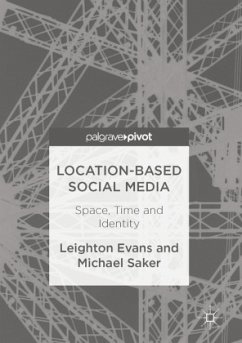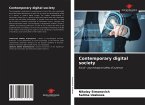This book extends current understandings of the effects of using locative social media on spatiality, the experience of time and identity. This is a pertinent and timely topic given the increase in opportunities people now have to explicitly and implicitly share their location through digital and mobile technologies. There is a growing body of research on locative media, much of this literature has concentrated on spatial issues. Research here has explored how locative media and location-based social media (LBSN) are used to communicate and coordinate social interactions in public space, affecting how people approach their surroundings, turning ordinary life "into a game", and altering how mobile media is involved in understanding the world. This book offers a critical analysis of the effect of usage of locative social media on identity through an engagement with the current literature on spatiality, a novel critical investigation of the temporal effects of LBSN use and a view ofidentity as influenced by the spatio-temporal effects of interacting with place through LBSN. Drawing on phenomenology, post-phenomenology and critical theory on social and locative media, alongside established sociological frameworks for approaching spatiality and the city, it presents a comprehensive account of the effects of LBSN and locative media use.
"Leighton Evans and Michael Saker provide an overview of the main currents in research on location-based social networks (LBSN), smartphone applications that allow users to broadcast their physical location and associate digital information with real-world places. ... Readers interested in LBSN and locative media will find plenty of thought-provoking material here, very much in line with the authors' previous research." (Will Payne, Environment and Planning B: Urban Analytics and City Science, Vol. 46 (5), 2019)








